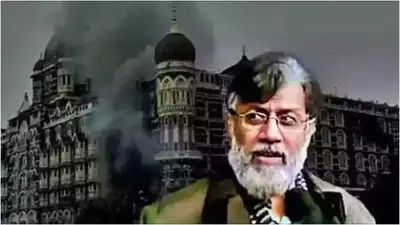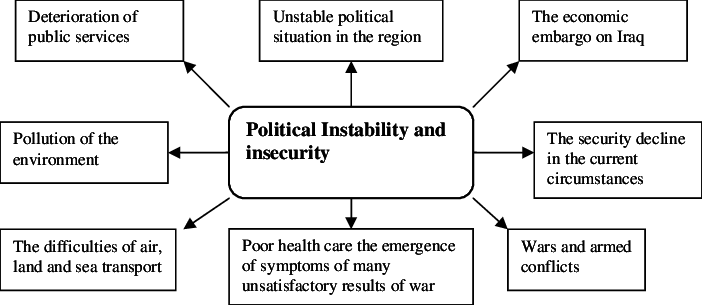Tahawwur Rana's Custody Extended: NIA Deepens Probe into 26/11 Mumbai Attacks
NIA court grants 12-day custody extension for 26/11 accused Tahawwur Rana to probe his role in Mumbai attacks and links with Lashkar-e-Taiba.

New Delhi: In a significant development in the ongoing investigation into the 2008 Mumbai terror attacks, a Delhi court has granted the National Investigation Agency (NIA) a 12-day extension of custody for Tahawwur Hussain Rana, a key accused in the case. This extension follows the conclusion of his initial 18-day remand, during which the NIA conducted extensive interrogations to unravel the complexities surrounding the attacks that claimed 166 lives.
Background: The 26/11 Mumbai Terror Attacks
On November 26, 2008, ten heavily armed terrorists from Pakistan carried out coordinated attacks across Mumbai, targeting prominent locations such as the Taj Mahal Palace Hotel, Oberoi Trident Hotel, Chhatrapati Shivaji Maharaj Terminus, and the Jewish community center, Nariman House. The assault lasted nearly 60 hours, resulting in the deaths of 166 individuals and injuring over 300 others. The attacks were orchestrated by the Pakistan-based terrorist organization Lashkar-e-Taiba (LeT), with David Coleman Headley, a Pakistani-American, playing a pivotal role in reconnaissance missions.
Tahawwur Rana's Alleged Involvement
Tahawwur Hussain Rana, a Canadian national of Pakistani origin, is alleged to have facilitated Headley's movements and activities in India under the guise of his immigration business. According to the NIA, Rana's company, First World Immigration Services, provided the necessary cover for Headley to conduct surveillance of potential targets in Mumbai and other Indian cities. The agency contends that Rana was aware of Headley's affiliations with LeT and the objectives of his missions.
In 2011, a U.S. court acquitted Rana of direct involvement in the Mumbai attacks but convicted him for his role in a separate plot targeting the Danish newspaper Jyllands-Posten. He was sentenced to 14 years in prison and was released in 2020 due to health concerns amid the COVID-19 pandemic. Subsequently, India sought his extradition to face charges related to the 26/11 attacks.
Extradition and Arrival in India
After prolonged legal proceedings, the U.S. Supreme Court rejected Rana's plea against extradition in April 2025. The court dismissed his arguments concerning potential torture and health risks, stating that adequate medical care would be provided in India. Following the court's decision, U.S. authorities handed over Rana to Indian officials, and he was brought to New Delhi under tight security. Upon arrival, he was produced before the NIA Special Court at Patiala House, which granted the agency an initial 18-day custody for interrogation.
NIA's Interrogation and Findings
During the initial remand period, the NIA conducted extensive interrogations to ascertain Rana's role in the 26/11 attacks. The agency claims to have gathered substantial evidence, including email communications and financial transactions, linking Rana to the conspiracy. Investigators allege that Rana, in collaboration with Headley, planned similar attacks in other Indian cities, including Delhi. The NIA also suspects Rana's involvement in identifying and surveying potential targets for future terrorist activities.
Court Proceedings and Custody Extension
On April 28, 2025, the NIA presented Rana before Special Judge Chander Jit Singh, seeking a 12-day extension of custody to further probe the case. The agency argued that Rana needed to be confronted with additional evidence and documents to unravel the full extent of the conspiracy. The court granted the extension, emphasizing the necessity of a thorough investigation into the matter.
Legal Representation and Rights
Rana is being represented by Advocate Piyush Sachdeva from the Delhi Legal Services Authority. The court has directed the NIA to ensure Rana's medical examination every 24 hours and to allow him to meet his lawyer every alternate day. Additionally, Rana is permitted to use only a "soft-tip pen" and can meet his lawyer in the presence of NIA officials, who will remain out of audible distance during the meetings.
International Implications and Reactions
Rana's extradition and subsequent custody have garnered international attention, particularly concerning the implications for U.S.-India relations and counterterrorism cooperation. The U.S. government's decision to extradite Rana underscores its commitment to supporting India's efforts in bringing perpetrators of the 26/11 attacks to justice. Furthermore, the case highlights the challenges associated with prosecuting individuals involved in transnational terrorist activities.
Pakistan's Stance and Diplomatic Dynamics
In response to Rana's extradition, Pakistan's Foreign Office issued a statement distancing itself from him, asserting that he had not renewed any Pakistani documentation in the last two decades and emphasizing his Canadian nationality. Indian intelligence officials interpret this move as a strategic attempt by Pakistan to mitigate potential diplomatic fallout and avoid scrutiny over its alleged involvement in the 26/11 attacks.
Security Measures and Future Proceedings
Given the high-profile nature of the case, Indian authorities have implemented stringent security measures to ensure Rana's safety and prevent any disruptions during the investigation. The NIA has assembled a dedicated team of officials to handle the case, and preparations are underway to present the findings before the court upon the conclusion of the extended custody period.
The extension of Tahawwur Rana's custody marks a critical juncture in India's pursuit of justice for the victims of the 26/11 Mumbai terror attacks. As the NIA delves deeper into the investigation, the case underscores the complexities of addressing international terrorism and the importance of global cooperation in combating such threats.
What's Your Reaction?

















.jpg)